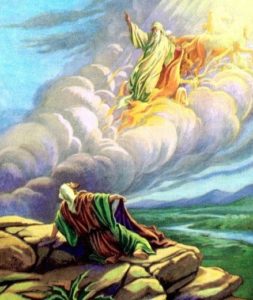This week we read Miketz, which continues to narrate the rise of Joseph. Of all the Biblical figures, Joseph alone carries the unique title haTzadik, “the righteous one”. We refer to the Patriarchs with the title Avinu, “our father”; to Moses as Rabbeinu, “our teacher”, and to his successors as haNavi, “the prophet”. Joseph stands apart as being Yosef HaTzadik. Certainly, all of the great Biblical figures were righteous, yet only Joseph carries the title.
At the same time, of all the Rabbinic figures, one is typically referred to as HaTzadik, and that would be Shimon HaTzadik, “the last of the Men of the Great Assembly” (Avot 1:2). Shimon might be considered the first or earliest Talmudic sage. The era of Zugot, “pairs” begins with him (and his student, Antigonus of Socho). His generation represented the transition from the era of Prophets to the era of Sages. So, we have two figures called “HaTzadik”, one Biblical and one Rabbinical. We know that in Judaism there are no coincidences. So, what’s the connection? Continue reading

